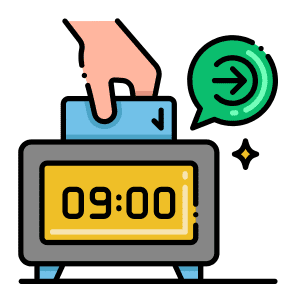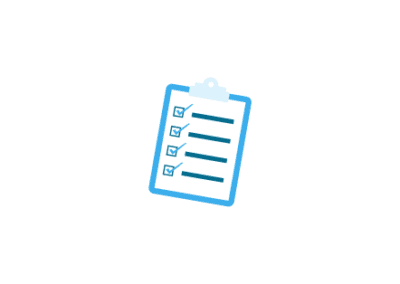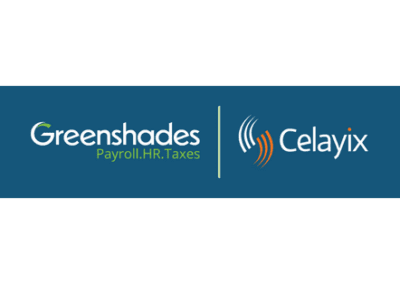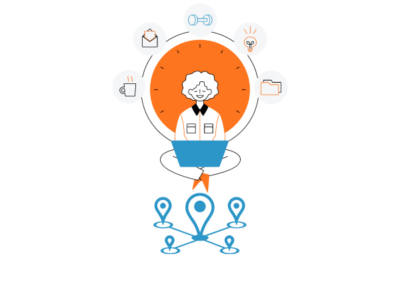If you read our latest blog post on EVV, you know exactly what it is, and when it will become mandatory. As you prepare for implementing EVV, you should definitely know about all of the possible implications of EVV on your home healthcare organization.
Firstly, it’s important to know what services must be electronically verified. Any healthcare service that an HCA offers in a private residence that Medicaid/Medicare is paying for requires EVV. Care services that are provided to hospital inpatients or nursing home residents do not require EVV.

In light of compliance, it’s important to consider how different states mandate EVV. For the “closed model,” a state implements a single EVV system and mandates that home care providers utilize it. In an “open model,” home care providers can choose from a variety of EVV solutions that meet certain requirements. If you’re not sure what model your state is implementing, check our latest list! Penalties will apply to any agencies not adhering to EVV regulations. They may even have their Medicare contracts canceled. Even with the prospect of regulatory concerns, EVV doesn’t have to be an example of bureaucratic red tape. Firstly, it represents a valuable opportunity to future-proof organizations. It also provides employees with tools to help them work faster and smarter, delivering the best possible patient experience.
What impact will EVV have on your Home care agency?
EVV has many possible implications for home care agencies (HCAs). While it can be tempting to focus on the downside of new governmental regulations, ultimately it’s the patients who will benefit from increased accountability. Caregivers will also benefit from increased connectivity and overall efficiency and reduced paperwork. Let’s take a look at the positive implications EVV might have on HCAs.
1) Government compliance
Obviously, it’s incredibly important to comply with government mandates such as EVV. Firstly, it is crucial to comply in order to take part in federal healthcare programs such as Medicaid and Medicare. Failure to comply with government legislation could quickly result in your business being shut down, which is the last thing you want. Implementing EVV software ensures that you are fully compliant, and you can continue to provide quality patient care.
2) Eliminate missed visits, late starts, and time theft:

3) Improve connectivity & communication
With EVV, employers are able to connect and communicate with their carers out in the field. By utilizing the smartphones of field workers, HCAs can do more than just meet the EVV guidelines. Employers will have real-time access to see where all of their employees are due to GPS check-ins. They will also be able to see all electronic signatures to ensure that the necessary tasks and being completed. Not only that, but most EVV systems allow employers to securely communicate directly with carers, without having to pick up the phone. Communication is one of the most important factors in business, and EVV can improve that for HCA’s.
4) Improved patient care and client satisfaction:
Of course, HCAs have a lot on their plates. With bureaucratic considerations like regulatory compliance and scheduling, it’s easy to forget their main purpose: caring for patients. The mission statement of any HCA will usually focus on helping care for others and improve their quality of life. When using an adaptable EVV solution, the plethora of secondary concerns that hinder HCAs can be tossed aside. It opens up opportunities to provide excellent service for satisfied clients. If used effectively, making the most of your EVV system can become a great advertisement for your HCA as patient care greatly improves.
Of course, there is a cost associated with using an EVV system in compliance with your state’s requirements. However, the home healthcare industry will see huge overall benefits from this implementation and are likely to see speedier reimbursement times as a result – win, win. As you can see, the implications of EVV are overwhelmingly positive.
Celayix – The Perfect Partner

At Celayix, we specialize in best-of-breed employee scheduling software, with a whole host of additional workforce management functionality. Home care agencies will need to take a step forward with the upcoming need for EVV implementation. We can help you to take this leap, solving your business problems and supporting your business along the way.
Most states and agencies are opting for mobile solutions because they are less expensive than bio-metric scanners. They are also more reliable than landline phones, which many people no longer have. Celayix represents a perfect solution to the EVV problem. It acts as a simple, easy-to-use approach to accommodate EVV requirements. Want to find out a bit more about what we do, or how we can help? Reach out to the team today and let us know what you need!





